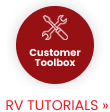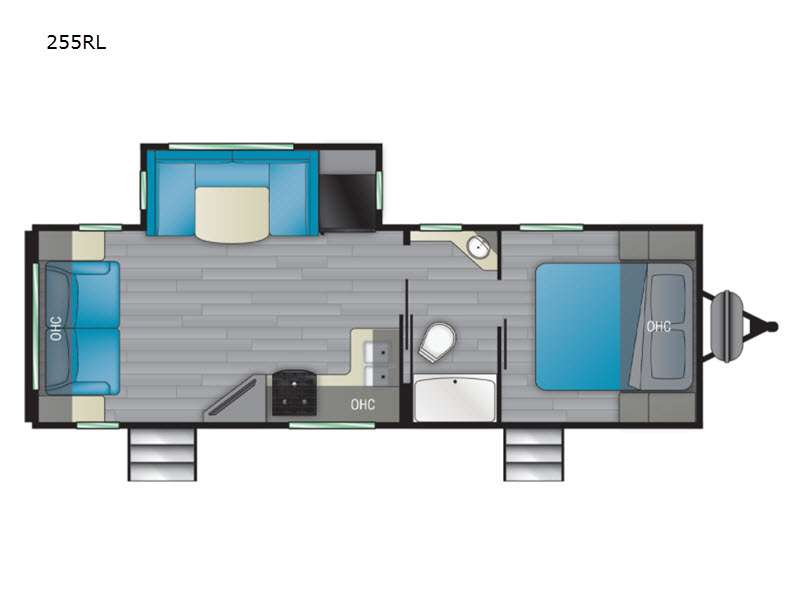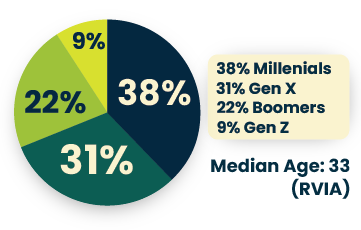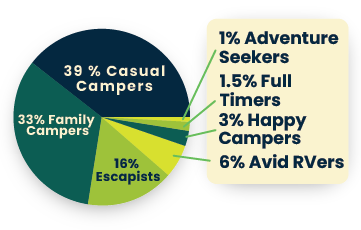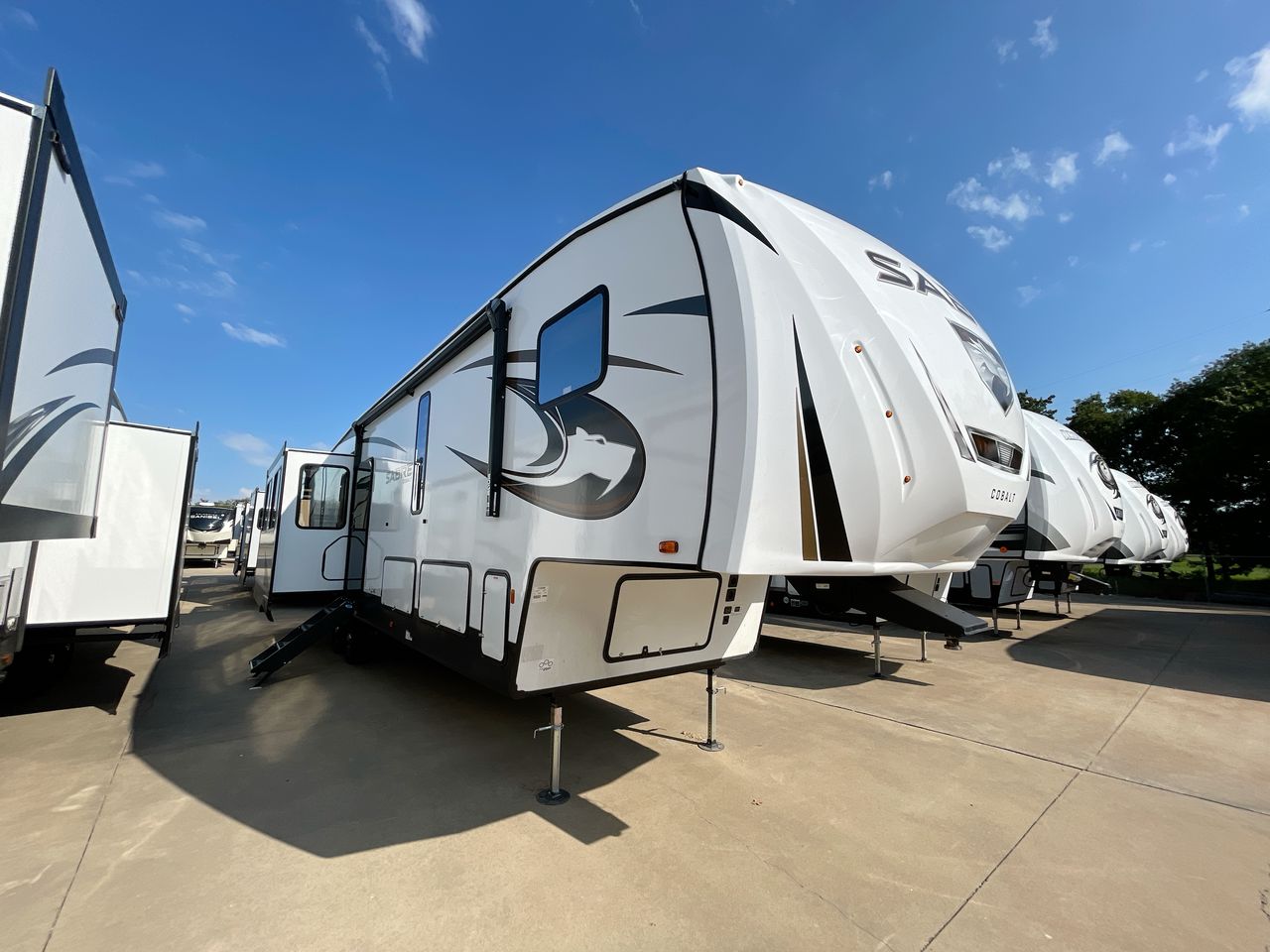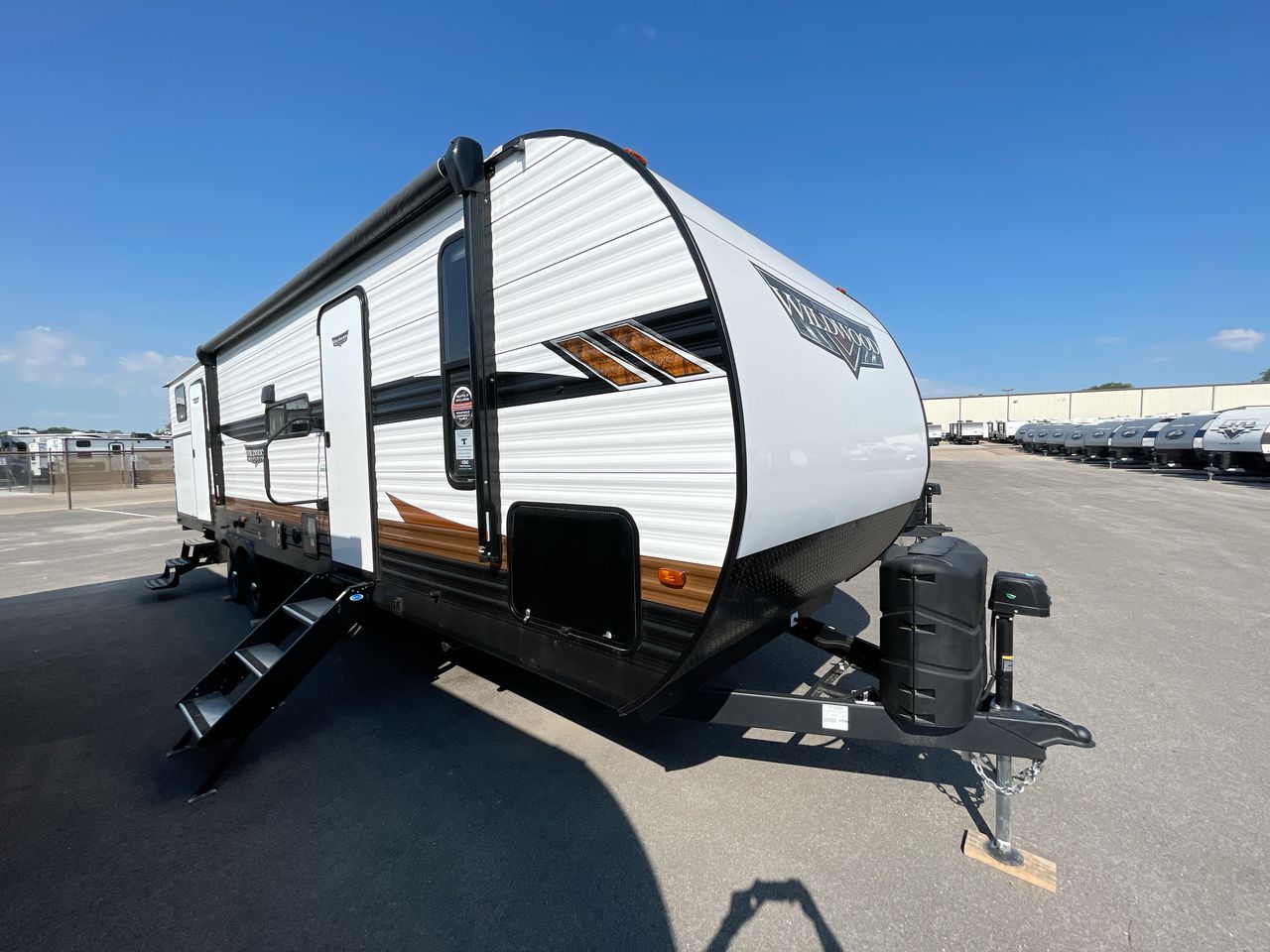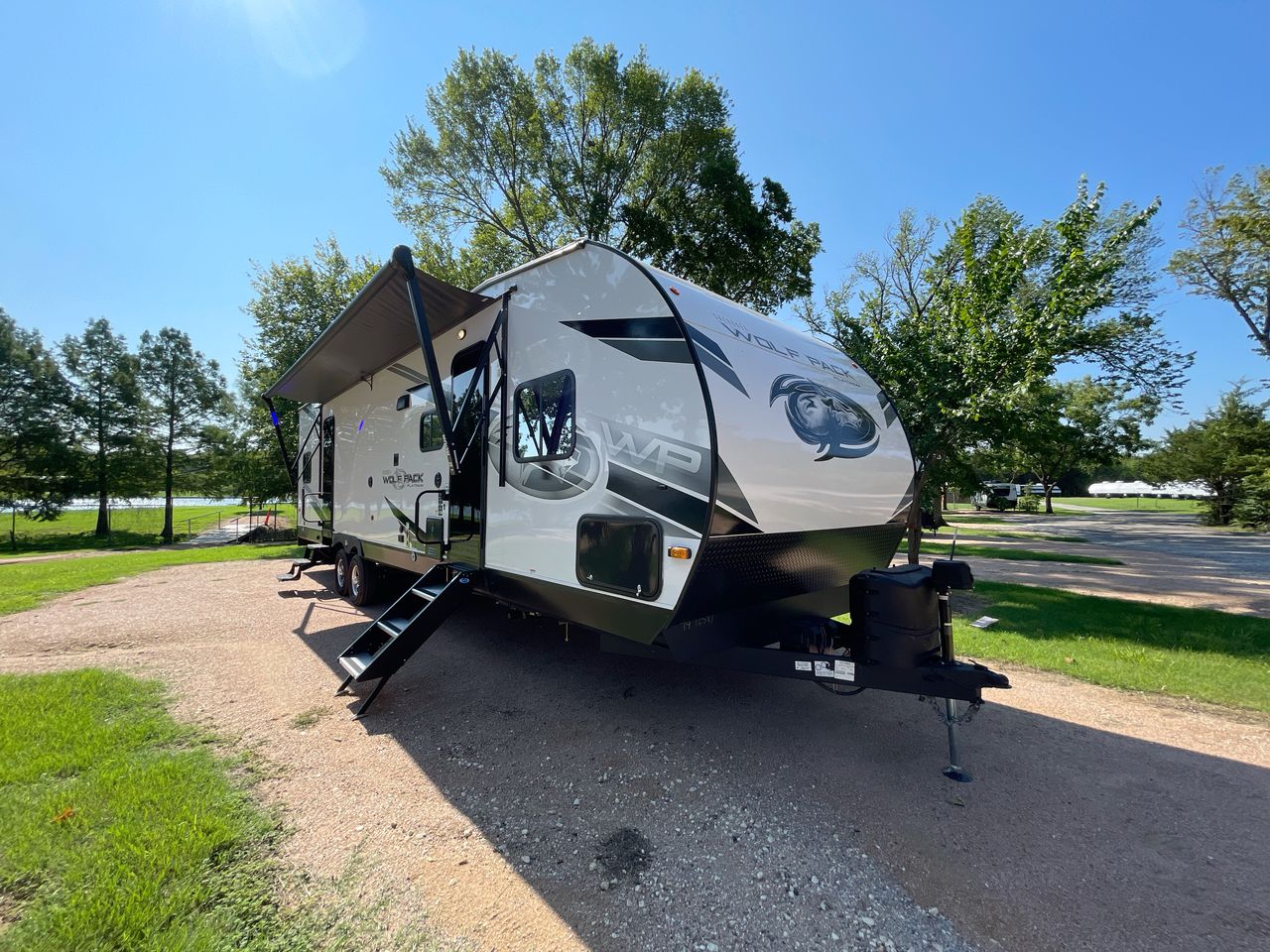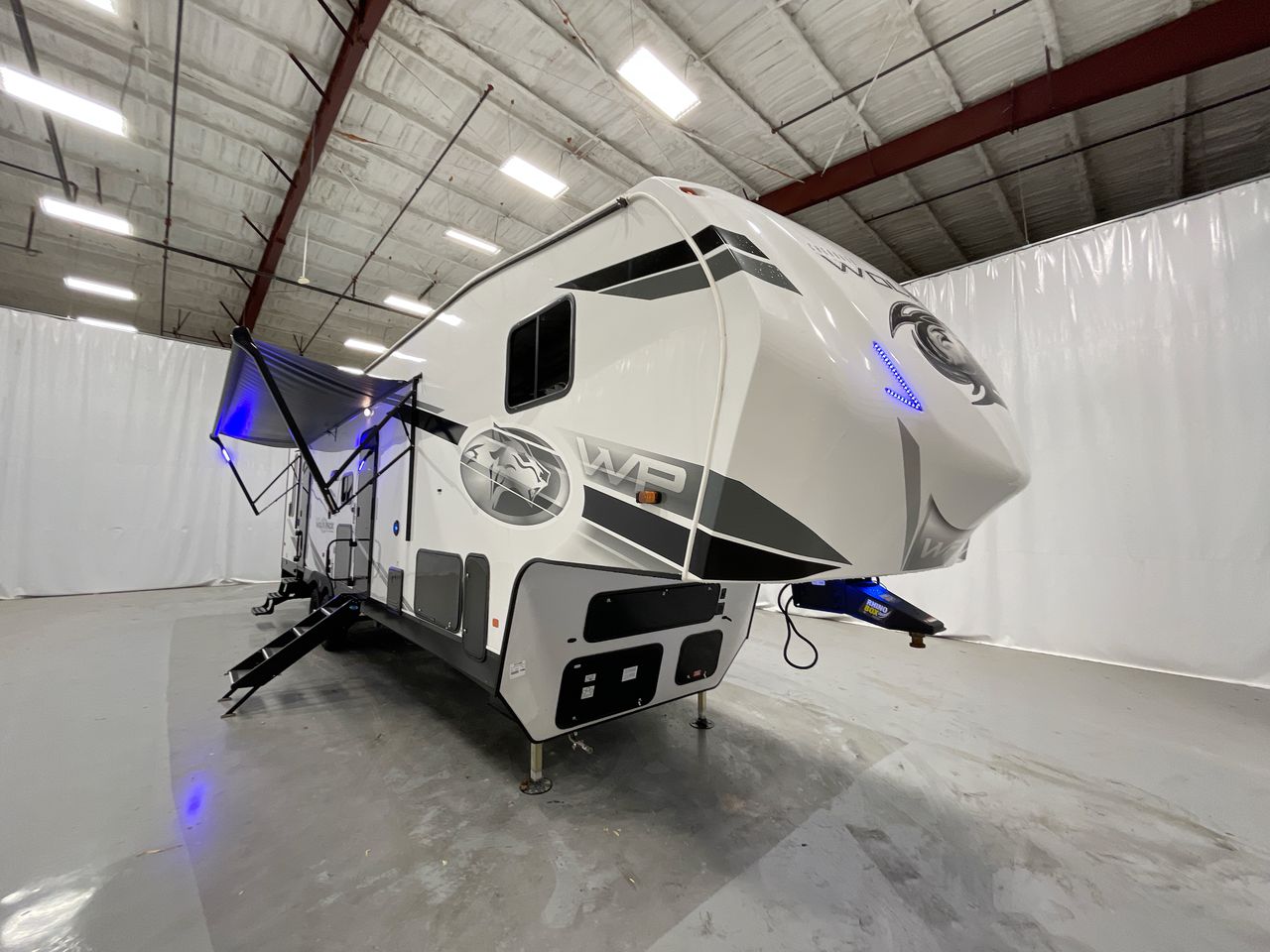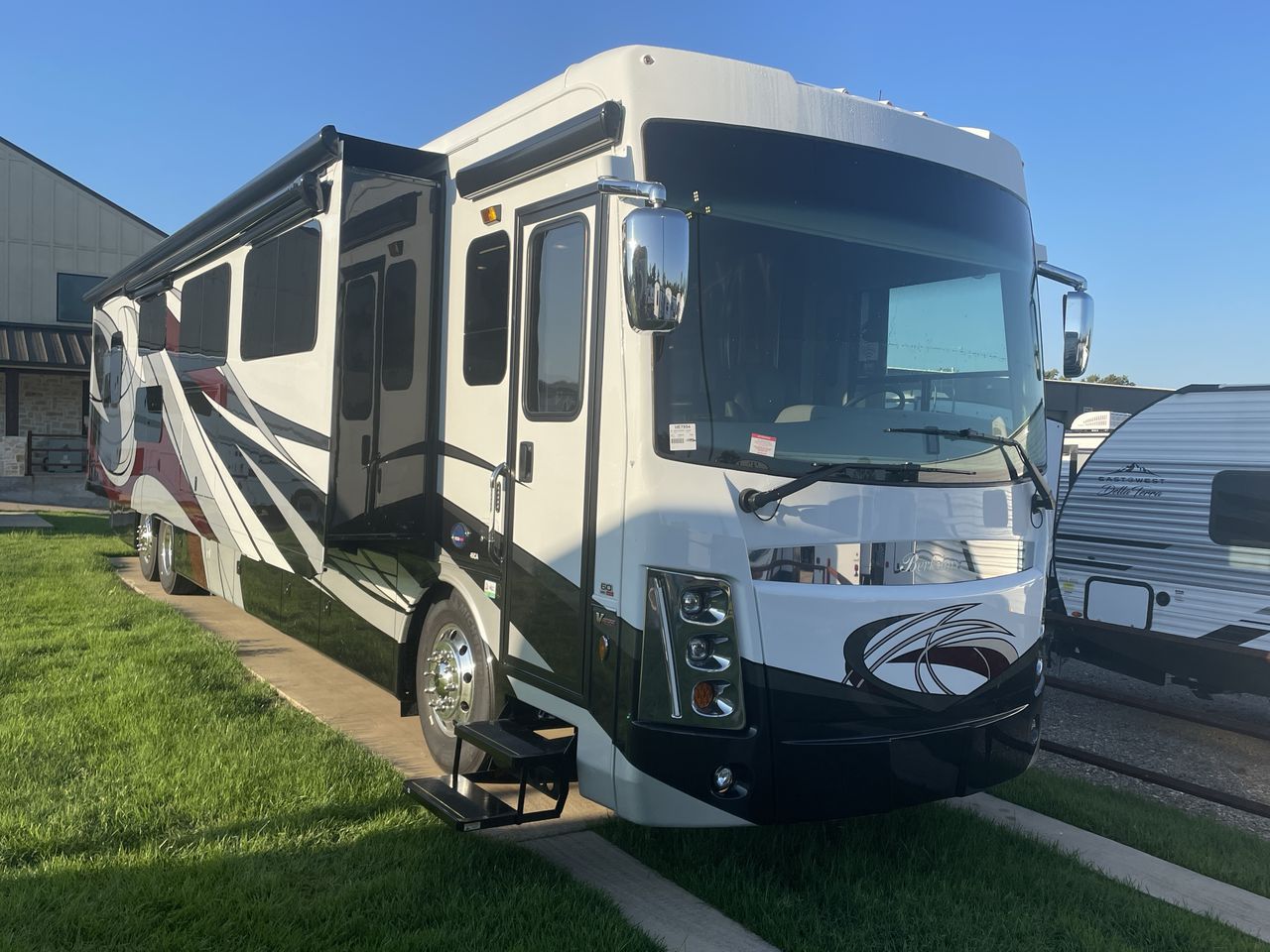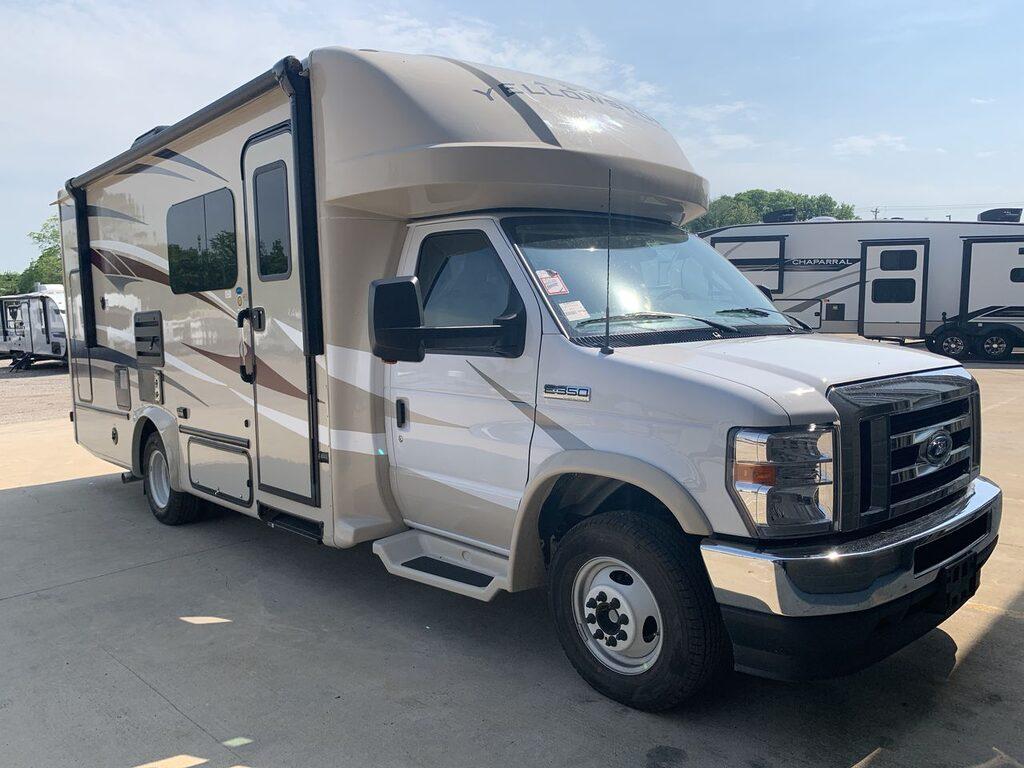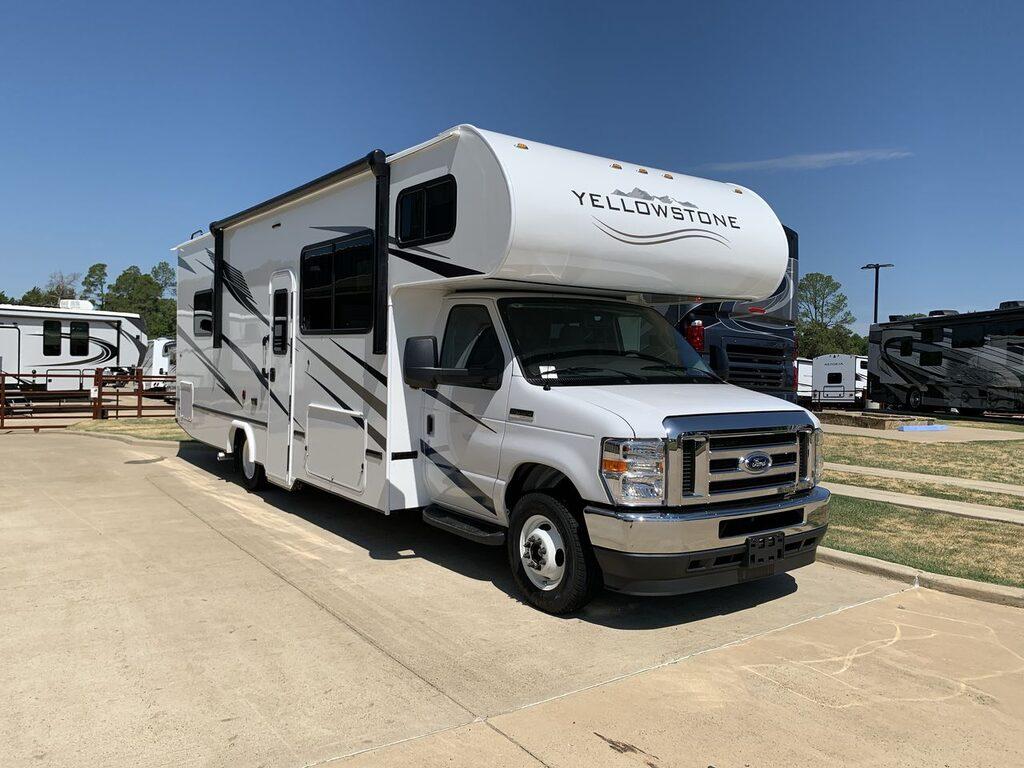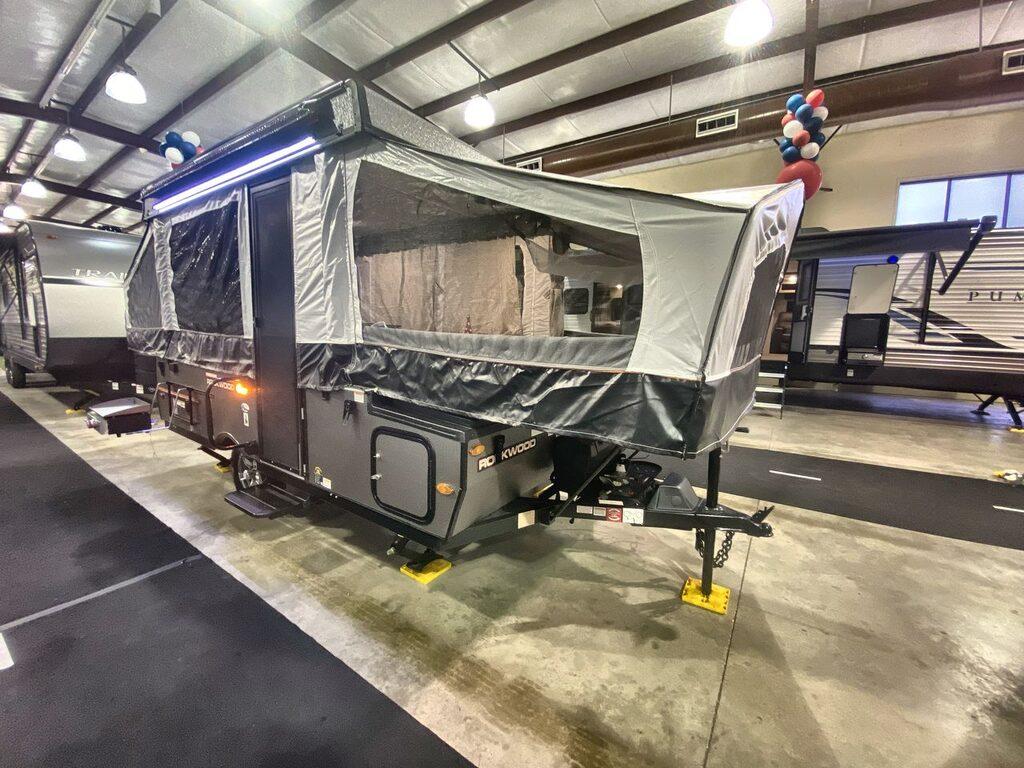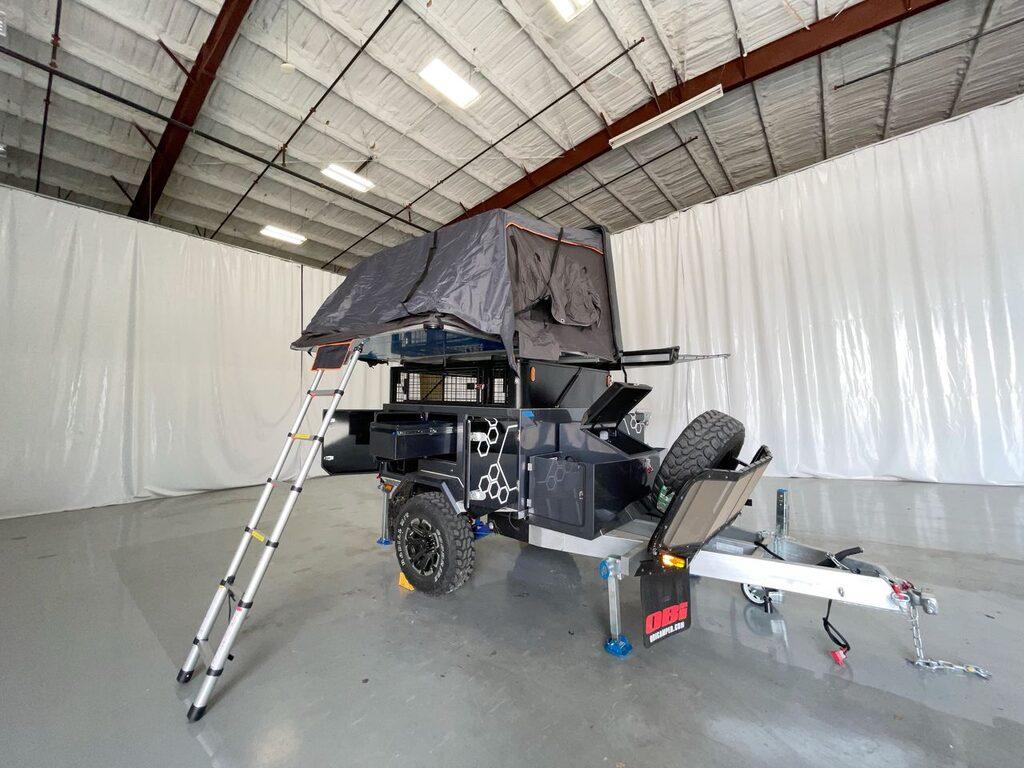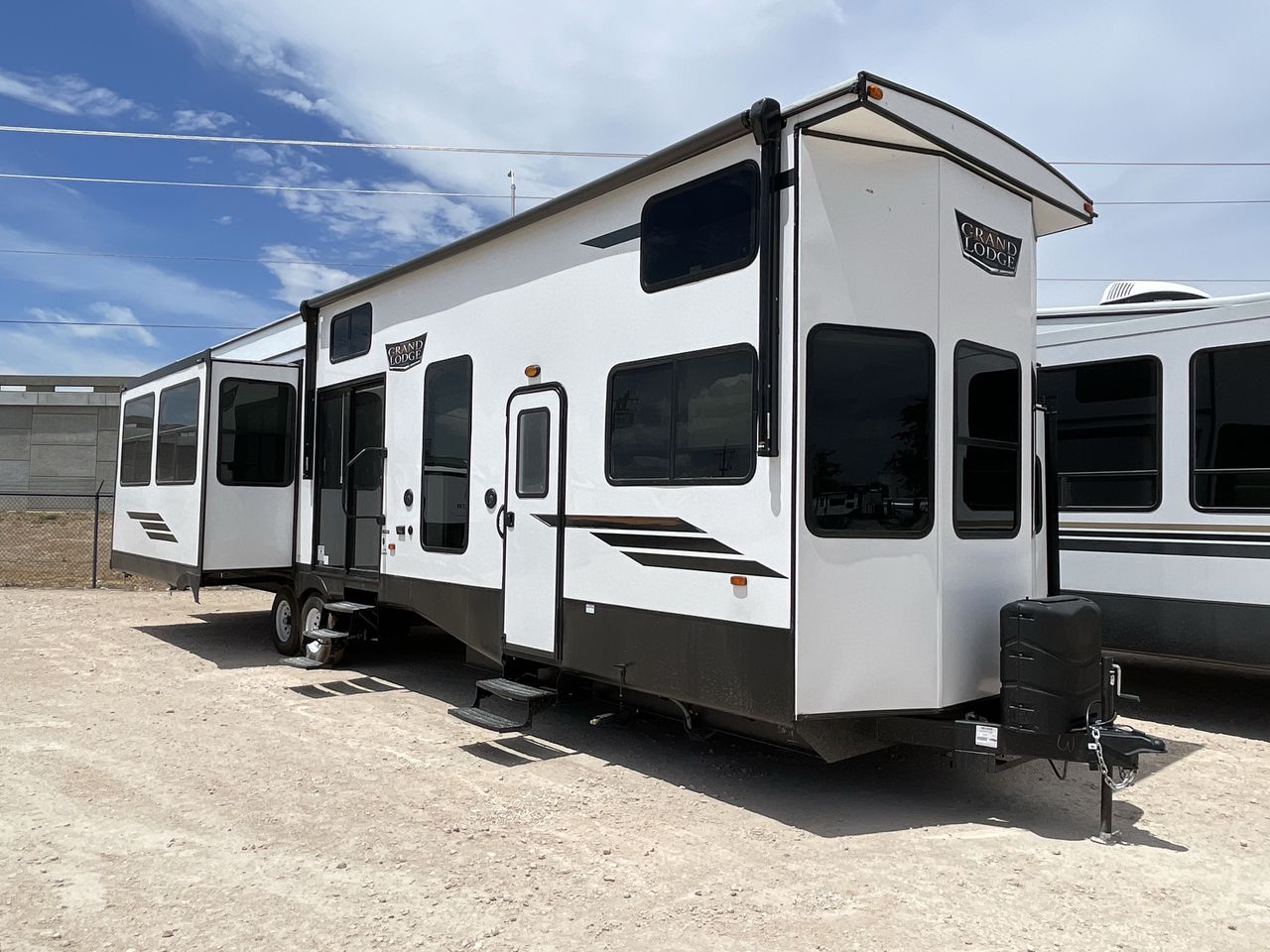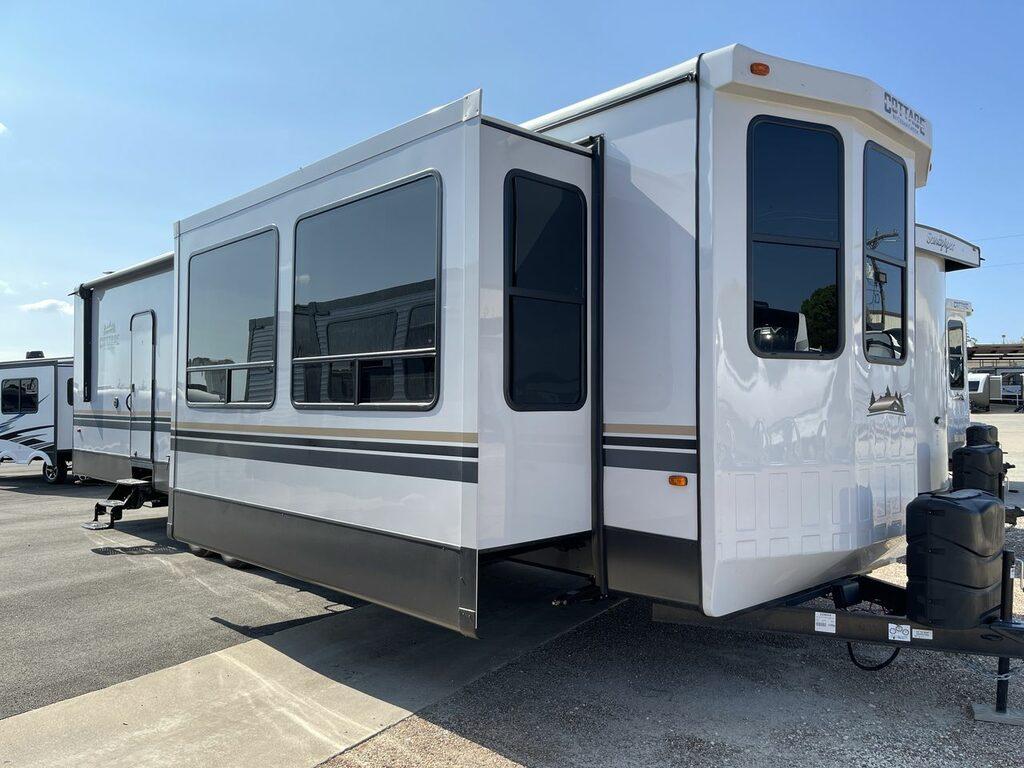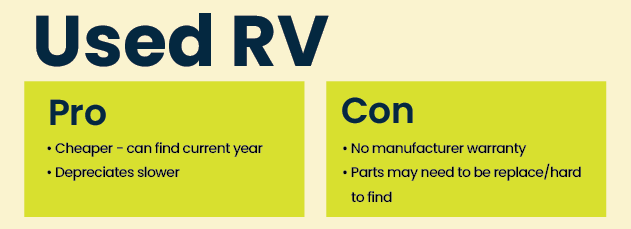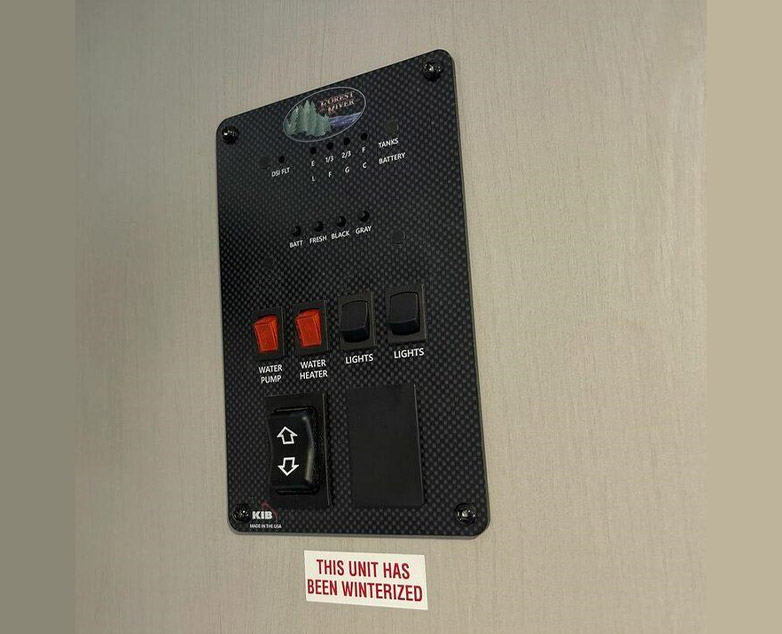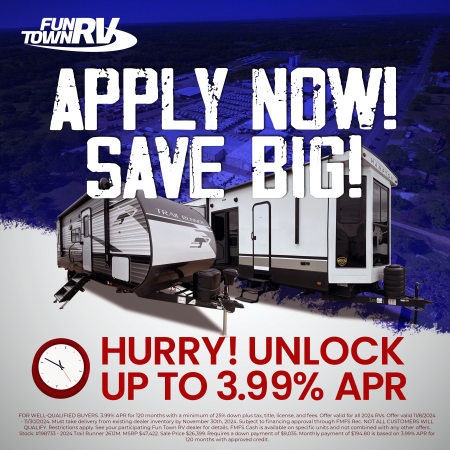Fun Town RV 2023 RV Buyer's Guide
Fun Town RV is providing this year’s 2023 RV Buyer’s Guide to help RVers through the RV buying process. We are here to help your RV with maintenance & service, supplies, camping, and more! As you start to research, you’ll get overwhelmed with many terms, brands, and even floor plans; we provide a guide with terms to pay attention to, like floor plans, RV types and descriptions, and after purchase guidance. Our 2023 RV Buyer’s Guide will help you make the best-researched choice with your new RV. There’s much to consider when looking for the perfect RV; Fun Town RV is here to help you find the best one.
If you’re a new or returning RVer, start researching what to expect from an RV. Campers come in different sizes, amenities, and so much more. There are many factors when choosing your next RV, such as budget, sleeping arrangements, and towing vehicle, to name a few. There are many RV brands to choose from that becomes overwhelming; some of the major brands are Forest River, Crossroads, Heartlands, and Gulf Stream; Fun Town RV carries many major brands. We have all types of RV: travel trailers, toy haulers, fifth wheels, motorhomes, off-road trailers, and even pop-up campers! Our knowledgeable RV sales professionals can help you find all the RVs that fit your needs. Fun Town RV’s blog has several helpful checklists and articles that can help you get prepared for your next adventure.
If you are new to RVing or been an avid RVer for years, we have the answers to the questions you have about RVs. Not finding an answer to your question? Contact us.
Basic Terms to Know
As you start the process, you’ll see recurring terms and floor plans that are common amongst certain styles of RVs. Fun Town RV will list some common ones to help you begin. Fun Town RV has a list of glossary RV terms to help you.
Some terms you should know:
- Couple’s Coach: One room RV; there are options to open or drop down to add extra sleeping space.
- Bunkhouse: Bunkhouses range from bunk beds in the corner to a room with bunk beds.
- Dry Weight: The weight before you start adding supplies to your RV.
- Holding Water Tank System
- Black: Sewage tank
- Gray: Waste water from sinks and showers
- Fresh: Clean Water supply
- Payload Capacity: The weight your car can safely tow; must not exceed.
Below are some standard floor plans you will see in RVs. These are only a few examples of floor plans; more floor plans are available from the Fun Town RV brands.
Examples of Floor Plans in non-toy hauler RVs:
- Bunkhouse (BH or MB or QB)
- Rear Living/Front Living (RL or FL)
- Rear/Front Entertainment (RE or FR)
- Rear/Front Kitchen (RK or FK)
Different Types of RVers You Will See
As you get involved in the RV Community, you’ll notice several types of RVers. People have different levels of enjoyment and fulfillment when they plan to camp. You’ll experience them all when you stay at RV Parks or boondock. Here is a summary from the RV Industry Association Demographic Profile:
- Adventure Seekers: A small group of RVers setting off to explore long term
- Full Timers: People who live year-long in an RV and enjoy the freedom of RVing.
- Happy Campers: Use RVs as a way to leave for the season.
- Avid RVers: Always wanting to go RVing when they have a chance.
- Escapists: RVers enjoy the freedom of camping for a few months.
- Family Campers: Grew up RVing and want to continue RVing as a family and create the same memories they experienced.
- Casual Campers: Go during the warmer months but enjoy this way of traveling.
These are some RVers you will see once you start heading out. They have different goals and expectations when they set out to find their next RV. There are many options, but you must research and figure out what RV is the best for you. Fun Town RV is helping you by providing the first steps in researching RVs and helping guide you through choosing one.
First Steps Research
Campers come in all sizes that can suit every buyer's need, but research and thought need to go into what you buy. You have many questions to figure out that would meet your requirements before investing in an RV. Here are some questions to consider when researching:
- How many people would you be traveling with?
- Do you need to upgrade your car for your new RV?
- Do you want full-time living or a weekend getaway?
- Do you prefer new or used?
The first step in researching RVs is understanding the different types. There are several types of RVs out there that will fit your needs. Campers can range in size and weight from as small as seven feet to as large as 45 feet, and that's before you add the length of your towing vehicle. You’ll find the RV that best fits your needs by how you will be living and working with the space. Below will be listed some of the RV types that Fun Town RV carries that will help you understand more about the RVs we sell. Here are the ranges of weights and lengths of the different RV Types we carry; these lengths and weights are before the added length of the towing vehicle and added weight of supplies to the RV. Please refer to our dry weight section and your towing vehicle section for more information.
Fifth Wheel
- Length: 25- 45 Ft.
- Weight: 5.5K - 20K Lbs
Fifth Wheels have amenities you see at home: a big pantry, massive bedroom, washer-dryer prep, and more. Fifth Wheels are great for full-time living with their spacious living spaces. The amenities you see in some of these RVs are bigger refrigerators and kitchens compared to smaller campers. You might look for other features if you plan to live in an RV full time, like washer-dryer hookups and more storage options.
In fifth wheels, you should pay attention to how many people you intend on bringing on the road. If you plan on bringing your kids, you might want to consider a bunkhouse floor plan. Fifth wheels commonly come with a bunkhouse. There is a range of floorplans that you can come to expect with a fifth wheel. Fifth Wheels are ready to take on any of your needs that need to meet when you choose your next RV.
Travel Trailer
- Length: 13 - 40 Ft.
- Weight: 1.2K - 10K Lbs.
Travel Trailers for all experience levels. Campers vary in length and weight; many floor plans to choose from, and you’ll always be able to find the perfect travel trailer.
Travel Trailers range from couple’s coaches to bunkhouses. Couple’s coaches tend to be smaller in length due to not needing the extra size for the bunkhouse; the trailers are great lightweight models for a quick weekend getaway. Travel Trailer floor plans have seen with either a bunkhouse, rear living or rear kitchen, or rear bath. Bunkhouses tend to take up the whole back end or split the space with the bathroom; the bunk beds are double or single. Rear living and Rear Kitchen tend to be in couple’s coach since there would be no room for a bunkhouse; this also applies to rear bath travel trailers.
Toy Hauler
Travel Trailer
- Length: 14 - 38 Ft.
- Weight: 1.8K - 11K Lbs.
Toy Hauler Travel Trailers are a smaller option to haul all of your off-roading toys. You’ll be able to load up and head out for exciting adventures with all your off-roading toys! These toy haulers are great for people wanting to be out all day and have a roof over their heads. The garage in most models is part of the main living area in travel trailers; some models have a separate garage available. The garage offers a large booth dinette that can be raised or transformed into another sleeping area.
Toy Haulers are built with front bedroom floor plans so the garage can be in the back for easy access. The living room can be shifted around to make room for your vehicles or move back in place once you are ready to relax for the night. Spacious living spaces that toy hauler travel trailers provide are great for families because of how much room you can spread out with your family in one of them. You’ll be able to bring your mountain bikes and accessories, motocross equipment, and even your four-wheelers! RV brands designed their Toy Hauler Travel Trailers living areas to have the most space possible for you to pull in your off-roading vehicle and set out for the next adventure.
Fifth Wheels
- Length: 36 - 46 Ft.
- Weight: 10K - 16.5K Lbs.
Fifth Wheel Toy Haulers are ready to head out on the next off-road adventure. Fifth Wheel garages can hold all of your off-roading toys or even a small car. Fifth Wheels have designated garages that are separated from the living areas. A few models don’t have the same garage as an average toy hauler, but you have bigger interior spaces like separated living and kitchen spaces. Models with floor plans like that won't be able to fit a car but can accommodate your mountain bikes or dirt bikes or even more storage for long-term RV living and traveling!
The living areas of Toy Hauler Fifth Wheels might be more condensed to make room for the garage. They combine the living and kitchen areas into one space with a good-sized bedroom and garage. The garage is designed as a dining, living, or sleeping arrangement. Even though it might be smaller in the living spaces overall, they expect you to open up your garage and use the patio space as an outdoor living space. Fun Town RV have seen RV parking in areas that might not have much outdoor space due to the RV; they get to use that Patio to their advantage.
Motorhome
Class A
- Length: 25 - 45 Ft.
- Weight: 16K - 30K Lbs.
Class A: luxury RVs that are great for groups to go head out and enjoy the countryside with the comforts of home. These RVs are long and spacious; they are the typical RV Motorhome you imagine when some say Motorhome.
Motorhomes are meant for long-term living and traveling. Class As will have a huge kitchen, big bedrooms, and a spacious living area. These RVs typically have household features: a washer-dryer hookup, a massive fridge, and much more! They can pull the car behind them, park your RV and go off exploring the area independently from your RV. These RVs can range from one full bath to two full bathrooms for long-term travel. Motorhomes can have additional sleeping areas in the main living space as well. They can easily add three to four extra sleeping spots to your motorhome. Some motorhome floorplans come with bunkhouses that sleep two people; you could easily sleep up to six comfortably there! You’ll have to research which one fits you best, but when you find the right one, you’ll be able to bring your whole family out on your next adventure!
Class B
- Length: 17 - 24 Ft.
- Weight: 6K - 11K Lbs.
Want to try Van Life but not ready for that much downsizing? Class B is the best fit for you. It's between Class A and C; Class B’s are known for their smaller size. They are not as big as the motorhomes, but it makes up for you not paying more in gas
In B’s, the living and sleeping area are combined. They transform and fold out when you need them, then easily collapse back when you're done for the night. Class B’s are great to go head out and explore the U.S. They are similar to renovated vans but have way more features! They’ll be able to have a bathroom and kitchen; most vans don’t have those built-in since they are smaller compared to Class Bs. A Class B takes out all the hassle of remodeling a van; it’ll be ready to hit the road as soon as you get your new motorhome!
Class C
- Length: 21 - 41 Ft.
- Weight: 12K - 20K Lbs.
These motorhomes are different from the other ones. They tend to have more defined living spaces and are not as compact as B’s. Class C’s are more likely to have slide-outs that allow you more room to hit the road more comfortably. They are a little more cumbersome when parking at a store when you need to restock your supplies. They’ll have defined rooms you won’t have to worry about making your bed every night after a long day of driving.
These motorhomes are great for couples or small families who want to live long-term in an RV. They have kitchens, full bathrooms, and a great bedroom! You will never have to worry about being uncomfortable with the comforts. These are great for couples who want to go cross country traveling in the U.S while avoiding airports.
Folding Pop-Up Camper
- Length: 8 - 16 Ft.
- Weight: 600 - 4.5K Lbs.
Want to get off the ground but still be a part of nature? Check out folding pop-ups: a tent on wheels! These are great for campers who want to go out year-round but don't want to be on the wet and cold ground. These trailers will have the basics you’ll need: storage, griddle, optional showers and travel toilet, and so much more!
Pop-Up Campers are great if you want to get off the grid and enjoy the outdoors. Pop-Ups are low maintenance, so you won’t have to worry about anything breaking down while you are out traveling. Folding Pop-Ups are more accessible because they can be towed by many more vehicles, and you won't have to worry about upgrading your car.
Off Road
- Length: 8 - 15 Ft.
- Weight: 600 - 6K Lbs.
Off-Road trailers are great for people who want a roof over their head while off-grid. These units can take any rough terrain you throw at them, built with reinforced materials that will be ready to hit every bump and kick up fabric from your car. These are hauled by smaller towing vehicles. These RVs are secure to keep all your hiking material together, built with several compartments that can be locked and easily accessible from the exterior.
These all-terrain vehicles are ready to take any weather. If you want an adventure, try out Fun Town RV’s Off-Road Trailers; these campers are built lightweight and durable. Experience Campers should look into these trailers. They provide small kitchenettes and bathrooms, perfect for easing roughing it off-grid. They are similar to folding pop-up campers, but these are ready to handle all four seasons. It can take on any torrential weather you are presented with at the campsite.
Destination Trailers
- Length: 36 - 43 Ft.
- Weight: 10K - 13K Lbs.
Are you looking into escaping the winter months? Destination Trailers are great RVs to look at; these trailers have all the household amenities that would want for long-term living. Some of them are washer-dryer hookups, residential fridges, oversized bedrooms, and a wine fridge and bar set up! Destination Trailers don’t move like other RVs; they are perfect to park on a piece of land as a guest house or travel to for long periods.
Destination trailers are typically one bedroom with possible extra sleep space like a loft above the main bedroom. These loft spaces can double as sleeping or storage space, which is great for RVs since there is limited storage space. They are great if you want to downsize your life or escape for the season; they have substantial living spaces, a great bathroom and bedroom, and a fantastic residential kitchen setup. Since these trailers are longer than the average RV, you can expect more household utilities would be available for installation like washer-dryers, ample fridge options, optional dishwasher hookups, and more! Destination Trailers offer larger areas like big bathrooms, which would allow dual vanity, more oversized showers, and easier maneuverability in the bathroom. Destination Trailer’s large wall slides to allow for wider RVs great for long-term living. Many brands’s also added slides to the bedroom to give you massive bedroom space—the washer and dryer are located in the bedroom on some floorplans.
When choosing your RV, a good rule of thumb is to remember who will be coming with you. If you are expecting your whole family to come, a bunkhouse would be a wise choice to look at. Fifth wheels, toy hauler fifth wheels, and destination trailers are more likely to have loft space. Loft spaces can sleep two to three if there is one loft space. Bunkhouse and Loft spaces are ideal storage spaces. Sometimes Double bed Bunkhouses in travel trailers have storage options under the beds for kayaks or container bins that are great for storing all your camping supplies! Look at the specs for an RV; RV dealers will say the most an RV can sleep. To figure out your sleeping arrangements, you’ll want to determine how many people would be actively staying in the RV. RVs will rest comfortably for two less than the maximum number of sleeping spaces available. For example, if it says sleeping four to six, it would mean more than four people would sleep comfortably. The lower number refers to actual beds that would be available; the higher number would be for sleeping on a fold-out couch or on the booth dinette that transforms into a bed for the night. Bigger Travel Trailers can easily sleep six to eight people; most people would think only fifth wheels can sleep that many but travel trailers can easily do that. The average RV goes up by two occupants; remember that those extra two might be sleeping on the fold-out couch or booth/U-shaped dinette in the main living area. Below are the typical occupant and floor plans that work when looking for an RV:
- 2 - 4: Couple’s Coach floor plan + living area
- 4 - 6: Front bedroom + bunkhouse + living areas
- 6 - 8: Front bedroom + bunkhouse + living areas
- 8+: Front bedroom + bunkhouse + possible loft space + living areas
All RV types have a range of sleeping accommodations you must consider when researching. If there will be many people in one RV, then that also needs to be thought about with how everyday life will interact. If it's just you and your partner, you’ll probably be OK with just one bathroom that is attached or that you have to walk through to access your room, but if you have kids, you don't want to be woken up in the middle of the night bathroom break if that's the only bathroom. There are options in floor plans where the main full bathroom is in the bedroom, but there might be a half bath attached to the bunkhouse or the living space with easy access. Floorplans expecting many people to sleep and live generally mean the sleep 6+ floor plans are more likely to have a bath and a half to two full bathrooms.
Some questions to ask yourself regarding sleeping accommodations:
- How many people will be traveling with you?
- If you travel long-term in your RV, how will you function in the RV?
When figuring out your RV, do you have to find your vehicle's towing capacity? Bigger the RV, the more towing strength you need. Fun Town RV has a towing guide current to as recently as 2021 models. The RV weight is the dry weight, meaning it doesn’t have all your supplies yet. Depending on what you are storing in your RV, it could mean that you are adding 200 pounds to even the weight of a car by figuring out what you expect to bring before buying your RV. This only applies to Towable RVs; some motorhomes can tow a vehicle behind them, but you should figure out their towing capacity before getting stuck somewhere.
If you are upgrading to a bigger RV, you should assume your current car isn’t going to work. You have to research the towing capacity threshold for the different weight classes of RVs. Your towing vehicle manufacturer can help confirm if your current vehicle can tow your preferred RV. In recent ads from truck dealers showcasing their heavy-duty trucks, they show that their trucks are pulling Toy Hauler Fifth Wheels; this shows they are ready to tow even more extra weight.
There are several types of hitches; Fun Town RV will help you figure out the best hitch for you.
When deciding which type of RV works best for you, does a smaller entry-level one work better for your first one? At Fun Town RV, we have several great entry-level RVs: Gulf Stream Kingsport Ultra Lite 248BH (picture: right) and Heartland Trail Runner 261JM are great travel trailers for first-time RVers with families. Other great ones would be Forest River Cherokee Arctic Wolf 287BH and Crossroads RV Cruiser Aire CR32BH (picture: right) for fifth wheels. Some great couple’s coach models are suitable for entry-level RVs that are affordable and spacious. Even some tiny couple’s coaches campers are great for any single person or couple out there!
If you plan to be often traveling or living long-term in your RV, it might be worth investing in a new RV due to having low upkeep at the beginning plus the manufacturer warranty that comes with the camper. The manufacturing warranty help covers any issues that didn't show during an inspection, but after being used, it came about. A new trailer will automatically return on investment if you start traveling immediately. What about a used option? Used options go fast; sometimes, you can find a current model year used unit, but they go fast. Used Units might already have maintenance due to the unit age and parts. Fun Town RV offers, with our new units RVIP, free yearly maintenance and inspections to comply with state regulations. Fun Town RV also offers winterization if you decide you aren’t camping this winter.
Second Stage
RVs need inspections to be compliant with state laws and regulations. As with a car’s yearly registration, they need inspections and updated documentation that would need to file the document with the state. Conveniently, Fun Town RV has a blog that will help you get your RV ready for the season and a checklist that you can look at for essential RV maintenance while deciding when to take your RV in for service.
Fun Town RV has researched and developed a great checklist you can use to help you figure out what you need and look for with your RV. Below will have a short overview list of what to look for during your maintenance check.
Exterior:
- Check the Propane tank
- Tires
- Exterior Sidings
Interior:
- Spring Clean
- Restock Supplies
- Check Fire Extinguishers
Operating Systems:
- De-winterize your system
- Check Alarms and Batteries
- Check electrical system and gas lines
- Check air conditioning filters
Don't forget to check the paperwork for your RV! RVs need to be registered over a specific weight class. Your RV must be documented with the state while also researching your state’s laws with what they need. The DMV has rules and policies on what you would need to head out for the summer. If you want to check out specific laws and regulations your RV needs, check out RV-Camping for more detailed information about our national park system. Most major insurance carriers will have an RV and Motorhome insurance option that might be available through your insurance. Fun Town RV offers insurance work service and accepts most major carriers. If you have an RV already and looking into service for your camper, you can check our Service Page or Paint Body Shop page for more information.
As you come to your RV decision, you outweigh what makes more sense to you: in a dealership, online, or even third party? In-person at a dealership is excellent for understanding the space you are working with. You get to see how big the RV is, which would be hard to understand with only pictures. You’ll have one of our knowledgeable Fun Town RV Sales Professionals that will walk you through the process of what to expect out of an RV while pointing out things you might not have realized you need when you head out. Online is great if you know what you want. You’ve had an RV in the past or have experience in living with one. It’s harder to place yourself in a space you haven't worked in before. What about a third party? Third-party has risks; you won't have guaranteed service like choosing a used unit from a dealership. You could be buying a 10-year-old unit and be paying way more than what should be feasible with that RV.
Third Stage
At this point, you know what RV you want; the next step is to start planning for your trips. Do you plan on long-term traveling or a quick trip? The best thing to do is plan and research when works best for you.
Some of your planning would include when is the best time to travel. The best time of the year is May through mid-October; however, that is when everybody else is setting out, so you’ll have to plan to figure out where your destination is for the season, and that means reserving your spots you won’t get in a bind for a holiday weekend. As you figure out your RV schedule, you’ll be able to determine what supplies to bring. RVs can easily be made ready for winter traveling; most RVs are insulated for warm and cold weather to keep it nice and cool in the summer to warm in the deep winter months. You can also add a generator or solar panels to help your RV stay warm off the grid. Most of Fun Town RV’s campers have an electric fireplace in the living area and even sometimes in the main bedroom; you’ll stay cozy all year round with this great feature.
When you start planning your route, you’ll need to plan around your destination if you don’t have the space in your RV where a grocery store is or even attractions. It's good to plan where you are stopping for the night to figure out where to get food if you need to safely dump wastes from your RV or a laundromat to clean your clothes or sheets. If you plan to explore your destination's area, can you find a place to park and stay for the night? It's easy now to find RV Park, or even a big parking lot for a night can work great. RV Parks sometimes have length limits or regulations you wouldn't think about. When researching RV Parks, always check the rules and policies they typically display before reserving your spot. Some of these rules that RV Parks have are related to pets, fire bans, or even the administrative practice they use. Parking at a big-name box store has more freedom and is suitable for one or two nights when going between places. But there are off-grid camping options called boondocking, which has no hookup and could be off-road parking. They tend to be first come, first serve to have an introductory rate of 20 dollars that might have covered essential site maintenance.
After you finish RVing for the season, Fun Town RV has some great storage options. We can easily winterize your RV, a part of the RVIP Program, so you won’t have to worry about messing up; Fun Town RV is ready to help you with anything!










